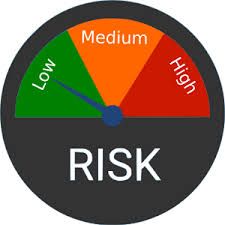HOW TO GAIN MORE CONFIDENCE AS A RISK-TAKER
How can I become more of a risk-taker so I can get more of what I want in my life? Determine your tolerance level or the cost you can afford to lose. You will often find that you CAN afford the cost because it is mostly your ego that stops you!
Stop and Pay Attention!
Before you undertake a risky move or decision think clearly about the full consequences if you fail to achieve it. Ask yourself:
What risk can I afford to take, and what risk can I not afford to take?
For me, when is a risk considered too much to bear?
Compare the imagined or potential losses including the softer or hard-to-measure ones, against the alleged or expected payoffs.
Measure Your Perceived Cost
Adequate risk measurement comes in two classes of R.O.I. - Return on Investment and Return on Ideas.
There are many different ways to measure them, but make sure that at regular points in time you know where you are as it relates to
the risk you undertake. Ask yourself:
Why am I undertaking this risk, and why do I believe the payoff exceeds the cost of the risk?
How will I measure this risk to know when to pull the plug?
How will I take responsibility for measuring objectively whether I’m benefiting or not?
Strike a Balance
Take only those risks that are important!
You cannot be everything to everyone. Stay focused on what you do best, and stick with that as your priority number one. Ask yourself:
What is most important to me right now?
What have I done best in the past that worked?
What am I trying to become best at in the future?
A 10 Step Plan to Build Your Self Confidence for Risking
- Understand your tolerance level for risk.
- Recall that you have risked successfully many times before.
- Deal first with your anxiety with risk-taking.
- Emphasize the reward/risk instead of the risk/reward ratio.
- Make decisions with less data to build your intuition.
- Don’t overplay the significance of the risk, by really my cost?”
- Rely on your intuition - it is usually right.
- Get the counsel of a risk-taker you admire.
- Know that the cultural norms always affect individual risk
- Know that you always have choices, no matter the initial outcome.
For more information, try our online class:
Risk Management: Assessing Risk vs Reward
